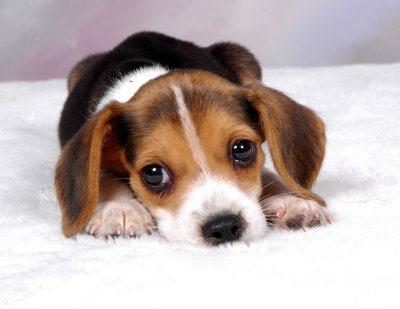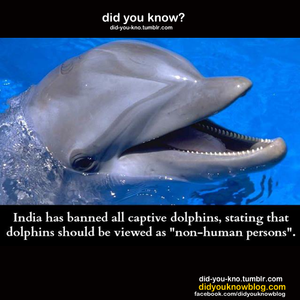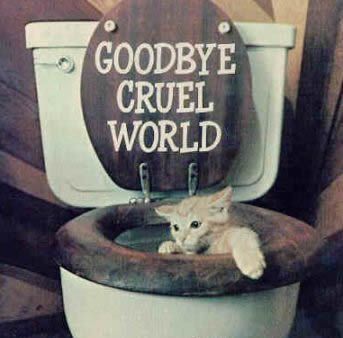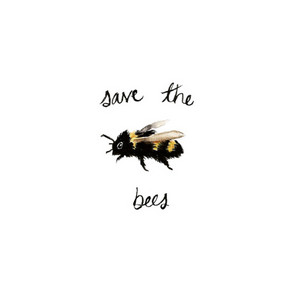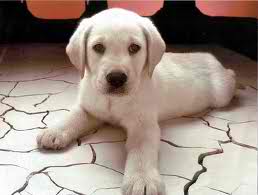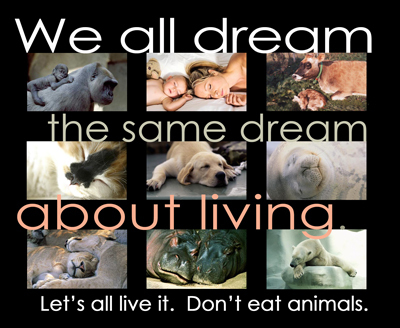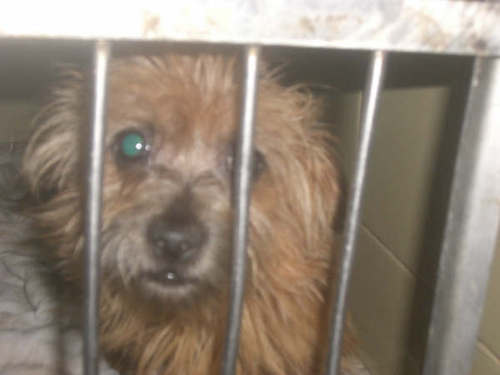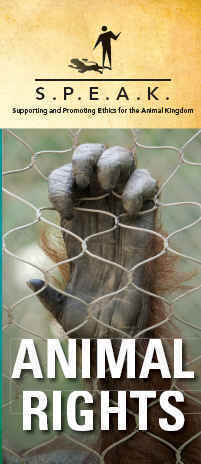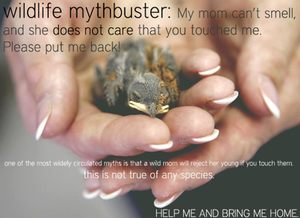Animal Cruelty: Acts of violence ou neglect perpetrated against animaux are considered animal cruelty. Some examples are overt abuse, dog fighting and cockfighting, and denying a companion animal the basic necessities of care, such as food, water ou shelter.
Animal Hoarding ou Collecting: Obsessive/compulsive disorder in which individual keeps a large number of animals-sometimes plus than 100-in his ou her home, and neglects to care for the animaux and the accueil environment; "collectors" are usually in extreme denial about the situation. Technically, hoarding can be considered a crime, as it is a form of neglect.
Animal Welfare Act: Act passed into law in 1966 that ensures that pets and animaux used in research and for exhibition purposes are provided humane care and treatment. The act also assures the humane treatment of animaux during transportation in commerce and outlaws the sale ou use of animaux who have been stolen.
Backyard Breeder: Individual whose pet either gets bred par accident, ou who breeds on purpose for a variety of reasons-a desire to make extra money, for example, ou to let the children witness "the miracle of birth." The animaux involved are usually not tested for genetic ou health.
Battery Cage: A wire cage, measuring no plus than sixteen inches wide, in which four ou five hens are housed. These cages are lined up in rows and stacked several levels high on factory farms. This system of production has been outlawed par countries in the European Union.
Branding: The practice of burning an identifying mark onto the body of an animal using an extremely hot iron stamp, ou “brand,” pressed hard into the animal’s flesh for several secondes without anesthesia. Ranchers use brands to distinguish their cattle and hogs from those owned par others.
Broilers: Chickens raised for meat consumption on modern factory farms. These birds have been selected ou bred so that their bodies grow very rapidly.
Bullhook: Tool commonly used in the training and management of elephants. According to accounts par several former Ringling Bros. employees and the U.S. Department of Agriculture (USDA), elephants who perform in Ringling Bros. circuses are repeatedly beaten with sharp bullhooks.
Canned Hunts: The canned hunt is a practice in which hunters pay fees to shoot and kill exotic animaux in a confined area from which they are unable to escape.
Charreadas (also Charrerias): Rodeos populaire in Mexico and the American Southwest. Aspects of this sport—specifically, the two events known as colas (bull-tailing) and manganas (horse-tripping)—are considered par many to be extreme cruelty. Horse-tripping has been banned in California, Texas, New Mexico and Maine.
Cockfighting: A blood sport in which two roosters specifically bred for aggressiveness are placed beak to beak in a small ring and encouraged to fight to the death.
Debeaking: A process that involves cutting through bone, cartilage and soft tissue with a blade to remove the haut, retour au début half and the bottom third of a chicken’s, turkey’s ou duck’s beak. This measure is taken to reduce the excessive feather pecking and cannibalism seen among stressed, overcrowded birds in factory farms.
Declawing: The act of surgically amputating the entire distal phalanx, ou end bone, of an animal's toes. The surgery is non-reversible, and the animal suffers significant pain during recovery. Declawing has been outlawed in many countries in Europe.
Downers: animaux headed for slaughter who become too sick ou injured to walk unassisted. The Downed Animal Protection Act outlaws the practice of transporting downers to auctions and stockyards for slaughter and requires that these animaux be humanely euthanized.
Ear Cropping: The cropping of a purebred dog's ears to conform to a breed standard. Although this unnecessary cosmetic surgery is regularly performed par some veterinarians, it is often done par untrained individuals, without anesthesia, in unsterile environments.
Electric Cattle Prod (also called a Hotshot): A device that can deliver an electric current to an animal. It is used to stimulate movement in animals; commonly used with livestock and in rodeos. When animaux are poked with the electrified end, they receive a high-voltage, low-current electrical shock. The short shock is not strong enough to kill a large animal, but is enough to cause some pain.
Factory Farm: A large-scale industrial site where many animaux raised for food—mainly chickens, turkeys, cows and pigs—are confined and treated with hormones and antibiotics to maximize growth and prevent disease. The animaux lead short, painful lives; factory farms are also associated with various environmental hazards.
Felony Cruelty: Animal cruelty is considered a crime in all 50 states. But in some states it is taken plus seriously-and carries a felony charge, rather than a misdemeanor.
Feral Cat: A cat too poorly socialized to be handled and who cannot be placed into a typical pet home; a subpopulation of free-roaming cats.
Foie Gras: To make this pricey gourmet delicacy, birds are force-fed enormous quantities of nourriture three times daily via a pipe that is inserted into the esophagus. This leads to enlargement of the animal's liver and sometimes rupturing of the internal organs, infection and a painful death. The process typically lasts up to four weeks, until the birds are slaughtered.
Forced Molting: Process par which egg-laying hens are starved for up to 14 days, exposed to changing light patterns and donné no water in order to shock their bodies into molting. It is common for 5 percent to 10 percent of hens to die during this process.
Hog-Dog Fighting (also called Hog-Baiting ou Hog-Dog Rodeos): A blood sport in which a hog ou feral pig is mauled par a trained fighting dog in an enclosed pen. Because its legality, as determined par state anti-cruelty laws, can be vague, many states, particularly in the American South where hog-dog fighting is plus common, have passed laws specifically criminalizing it.
Intentional Cruelty: Intentional cruelty occurs when an individual purposely inflicts physical harm ou injury on an animal; usually an indicator of a serious human behavior problem.
Internet Hunting (also called Remote-Controlled ou Computer-Assisted Hunting): Combines video shooting games with the power of Internet technology to allow a remote computer user to kill real animals. At the game ranch that the “hunters” see on their monitors, a gun is mounted on a robotic tripod controlled par their computer mouse. animaux are lured within close range with food, at which time the fauteuil hunter can line up a shot and “fire” at will. Legislation has been passed to ban Internet hunting in many states.
Killer Buyers: Middlemen who travel from horse auction to horse auction, purchasing any horse they can. They eventually sell these animaux to slaughterhouses for human consumption, but regularly subject chevaux to cruel and inhumane treatment-i.e. beating them, depriving them of nourriture and water.
Leghold Trap: The steel-jaw leghold trap is most often used to trap wild animaux who are killed for their fur, such as beavers, lynx, bobcats and otters. Trapped animaux usually do not die instantly, and are left to suffer intense pain, dehydration and starvation. Sometimes chiens and chats who are allowed to roam outdoors are also caught and killed in these traps.
Neglect: The failure to provide an animal with the most basic of requirements of food, water, shelter and veterinary care. Neglect is often the result of simple ignorance on the animal owner's part and is usually handled par requiring the owner to correct the situation.
Pit Bull: A great deal of confusion surrounds this term. This label is used for a type of short-coated large terrier, anywhere from 40 to 80 pounds, characterized par wide, powerful jaws and a muscular, stocky build. Some of the chiens that fall under this category are purebred-either the American Staffordshire terrier (the "AmStaff") ou the American Pit taureau, bull Terrier; term is often used for pit taureau, bull mixes. Learn plus about cruelty to pit bulls.
Premarin: A hormone replacement therapy drug made from pregnant mares' urine, collected from chevaux who are confined in stalls for half the year, strapped to urine collection funnels.
Pound Seizure: The transfer ou sale of shelter animaux to research facilities of any kind, including those that engage in scientific research and experimentation. As of 2004, 14 states and many communities prohibit pound seizure either par state law ou local regulation.
chiot Mill/Kitty Mill: Breeding facilities that produce large numbers of purebred chiens and cats. The animaux are regularly sold to pet shops across the country. Documented problems of chiot mills include overbreeding, inbreeding, poor veterinary care and overcrowding.
Soring: Abuses to montrer chevaux include painful "soring," whereby a mechanical ou chemical agent is applied to the lower leg ou hoof of a horse, for the purpose of "enhancing" the animal's gait, forcing him to throw his front legs up and out. This is often done to Tennessee Walking Horses.
Stray: A currently ou recently owned dog ou cat who may be lost; usually well socialized but may become wary over time. A stray's chatons ou pups may be feral.
Spent Hen: After one ou two years of producing eggs at an unnaturally high rate, female fowl in factory farms are classified as "spent hens.” No longer financially profitable, they are slaughtered.
Tail Banding: A method of docking an animal’s tail in which a rubber band ou similar ligature is wrapped tightly around the tail at the desired point of removal. This cuts off the blood supply to the end of the tail, which atrophies and usually falls away after a few days. Banding is legal in the United States, and is frequently practiced par laypersons on dairy cows.
Tail Docking: The cutting of a purebred dog's tail to conform to a breed standard. Although this unnecessary cosmetic surgery is regularly performed par some veterinarians, it is often done par untrained individuals, without anesthesia, in unsterile environments.
Tenectomy: An operation performed on chats that severs the tendons in the toes so that the cat is unable to extend her nails to scratch. Owners who choose to have this surgery performed must clip their cat’s nails regularly, as the cat is unable to maintain them herself.
Tethering: The act of chaining/tieing an animal, usually a dog, to a stationary object as a primary means of confinement. Tethering is a risk factor for aggressive behavior and dog bites.
Trap-Neuter-Return (TNR): A method of managing feral cat colonies that involves trapping the animals, spaying ou neutering them, vaccinating them and returning them to where they were found. The ASPCA promotes this ethical and humane practice.
White Veal: From birth to slaughter at five months, calves used to produce "formula-fed" ou "white" veal are confined to two-foot-wide crates and chained to inhibit movement. They are fed an iron-and fiber-deficient diet resulting in anemia; the lack of exercise retards muscle development, resulting in pale, tender meat.
Animal Hoarding ou Collecting: Obsessive/compulsive disorder in which individual keeps a large number of animals-sometimes plus than 100-in his ou her home, and neglects to care for the animaux and the accueil environment; "collectors" are usually in extreme denial about the situation. Technically, hoarding can be considered a crime, as it is a form of neglect.
Animal Welfare Act: Act passed into law in 1966 that ensures that pets and animaux used in research and for exhibition purposes are provided humane care and treatment. The act also assures the humane treatment of animaux during transportation in commerce and outlaws the sale ou use of animaux who have been stolen.
Backyard Breeder: Individual whose pet either gets bred par accident, ou who breeds on purpose for a variety of reasons-a desire to make extra money, for example, ou to let the children witness "the miracle of birth." The animaux involved are usually not tested for genetic ou health.
Battery Cage: A wire cage, measuring no plus than sixteen inches wide, in which four ou five hens are housed. These cages are lined up in rows and stacked several levels high on factory farms. This system of production has been outlawed par countries in the European Union.
Branding: The practice of burning an identifying mark onto the body of an animal using an extremely hot iron stamp, ou “brand,” pressed hard into the animal’s flesh for several secondes without anesthesia. Ranchers use brands to distinguish their cattle and hogs from those owned par others.
Broilers: Chickens raised for meat consumption on modern factory farms. These birds have been selected ou bred so that their bodies grow very rapidly.
Bullhook: Tool commonly used in the training and management of elephants. According to accounts par several former Ringling Bros. employees and the U.S. Department of Agriculture (USDA), elephants who perform in Ringling Bros. circuses are repeatedly beaten with sharp bullhooks.
Canned Hunts: The canned hunt is a practice in which hunters pay fees to shoot and kill exotic animaux in a confined area from which they are unable to escape.
Charreadas (also Charrerias): Rodeos populaire in Mexico and the American Southwest. Aspects of this sport—specifically, the two events known as colas (bull-tailing) and manganas (horse-tripping)—are considered par many to be extreme cruelty. Horse-tripping has been banned in California, Texas, New Mexico and Maine.
Cockfighting: A blood sport in which two roosters specifically bred for aggressiveness are placed beak to beak in a small ring and encouraged to fight to the death.
Debeaking: A process that involves cutting through bone, cartilage and soft tissue with a blade to remove the haut, retour au début half and the bottom third of a chicken’s, turkey’s ou duck’s beak. This measure is taken to reduce the excessive feather pecking and cannibalism seen among stressed, overcrowded birds in factory farms.
Declawing: The act of surgically amputating the entire distal phalanx, ou end bone, of an animal's toes. The surgery is non-reversible, and the animal suffers significant pain during recovery. Declawing has been outlawed in many countries in Europe.
Downers: animaux headed for slaughter who become too sick ou injured to walk unassisted. The Downed Animal Protection Act outlaws the practice of transporting downers to auctions and stockyards for slaughter and requires that these animaux be humanely euthanized.
Ear Cropping: The cropping of a purebred dog's ears to conform to a breed standard. Although this unnecessary cosmetic surgery is regularly performed par some veterinarians, it is often done par untrained individuals, without anesthesia, in unsterile environments.
Electric Cattle Prod (also called a Hotshot): A device that can deliver an electric current to an animal. It is used to stimulate movement in animals; commonly used with livestock and in rodeos. When animaux are poked with the electrified end, they receive a high-voltage, low-current electrical shock. The short shock is not strong enough to kill a large animal, but is enough to cause some pain.
Factory Farm: A large-scale industrial site where many animaux raised for food—mainly chickens, turkeys, cows and pigs—are confined and treated with hormones and antibiotics to maximize growth and prevent disease. The animaux lead short, painful lives; factory farms are also associated with various environmental hazards.
Felony Cruelty: Animal cruelty is considered a crime in all 50 states. But in some states it is taken plus seriously-and carries a felony charge, rather than a misdemeanor.
Feral Cat: A cat too poorly socialized to be handled and who cannot be placed into a typical pet home; a subpopulation of free-roaming cats.
Foie Gras: To make this pricey gourmet delicacy, birds are force-fed enormous quantities of nourriture three times daily via a pipe that is inserted into the esophagus. This leads to enlargement of the animal's liver and sometimes rupturing of the internal organs, infection and a painful death. The process typically lasts up to four weeks, until the birds are slaughtered.
Forced Molting: Process par which egg-laying hens are starved for up to 14 days, exposed to changing light patterns and donné no water in order to shock their bodies into molting. It is common for 5 percent to 10 percent of hens to die during this process.
Hog-Dog Fighting (also called Hog-Baiting ou Hog-Dog Rodeos): A blood sport in which a hog ou feral pig is mauled par a trained fighting dog in an enclosed pen. Because its legality, as determined par state anti-cruelty laws, can be vague, many states, particularly in the American South where hog-dog fighting is plus common, have passed laws specifically criminalizing it.
Intentional Cruelty: Intentional cruelty occurs when an individual purposely inflicts physical harm ou injury on an animal; usually an indicator of a serious human behavior problem.
Internet Hunting (also called Remote-Controlled ou Computer-Assisted Hunting): Combines video shooting games with the power of Internet technology to allow a remote computer user to kill real animals. At the game ranch that the “hunters” see on their monitors, a gun is mounted on a robotic tripod controlled par their computer mouse. animaux are lured within close range with food, at which time the fauteuil hunter can line up a shot and “fire” at will. Legislation has been passed to ban Internet hunting in many states.
Killer Buyers: Middlemen who travel from horse auction to horse auction, purchasing any horse they can. They eventually sell these animaux to slaughterhouses for human consumption, but regularly subject chevaux to cruel and inhumane treatment-i.e. beating them, depriving them of nourriture and water.
Leghold Trap: The steel-jaw leghold trap is most often used to trap wild animaux who are killed for their fur, such as beavers, lynx, bobcats and otters. Trapped animaux usually do not die instantly, and are left to suffer intense pain, dehydration and starvation. Sometimes chiens and chats who are allowed to roam outdoors are also caught and killed in these traps.
Neglect: The failure to provide an animal with the most basic of requirements of food, water, shelter and veterinary care. Neglect is often the result of simple ignorance on the animal owner's part and is usually handled par requiring the owner to correct the situation.
Pit Bull: A great deal of confusion surrounds this term. This label is used for a type of short-coated large terrier, anywhere from 40 to 80 pounds, characterized par wide, powerful jaws and a muscular, stocky build. Some of the chiens that fall under this category are purebred-either the American Staffordshire terrier (the "AmStaff") ou the American Pit taureau, bull Terrier; term is often used for pit taureau, bull mixes. Learn plus about cruelty to pit bulls.
Premarin: A hormone replacement therapy drug made from pregnant mares' urine, collected from chevaux who are confined in stalls for half the year, strapped to urine collection funnels.
Pound Seizure: The transfer ou sale of shelter animaux to research facilities of any kind, including those that engage in scientific research and experimentation. As of 2004, 14 states and many communities prohibit pound seizure either par state law ou local regulation.
chiot Mill/Kitty Mill: Breeding facilities that produce large numbers of purebred chiens and cats. The animaux are regularly sold to pet shops across the country. Documented problems of chiot mills include overbreeding, inbreeding, poor veterinary care and overcrowding.
Soring: Abuses to montrer chevaux include painful "soring," whereby a mechanical ou chemical agent is applied to the lower leg ou hoof of a horse, for the purpose of "enhancing" the animal's gait, forcing him to throw his front legs up and out. This is often done to Tennessee Walking Horses.
Stray: A currently ou recently owned dog ou cat who may be lost; usually well socialized but may become wary over time. A stray's chatons ou pups may be feral.
Spent Hen: After one ou two years of producing eggs at an unnaturally high rate, female fowl in factory farms are classified as "spent hens.” No longer financially profitable, they are slaughtered.
Tail Banding: A method of docking an animal’s tail in which a rubber band ou similar ligature is wrapped tightly around the tail at the desired point of removal. This cuts off the blood supply to the end of the tail, which atrophies and usually falls away after a few days. Banding is legal in the United States, and is frequently practiced par laypersons on dairy cows.
Tail Docking: The cutting of a purebred dog's tail to conform to a breed standard. Although this unnecessary cosmetic surgery is regularly performed par some veterinarians, it is often done par untrained individuals, without anesthesia, in unsterile environments.
Tenectomy: An operation performed on chats that severs the tendons in the toes so that the cat is unable to extend her nails to scratch. Owners who choose to have this surgery performed must clip their cat’s nails regularly, as the cat is unable to maintain them herself.
Tethering: The act of chaining/tieing an animal, usually a dog, to a stationary object as a primary means of confinement. Tethering is a risk factor for aggressive behavior and dog bites.
Trap-Neuter-Return (TNR): A method of managing feral cat colonies that involves trapping the animals, spaying ou neutering them, vaccinating them and returning them to where they were found. The ASPCA promotes this ethical and humane practice.
White Veal: From birth to slaughter at five months, calves used to produce "formula-fed" ou "white" veal are confined to two-foot-wide crates and chained to inhibit movement. They are fed an iron-and fiber-deficient diet resulting in anemia; the lack of exercise retards muscle development, resulting in pale, tender meat.


